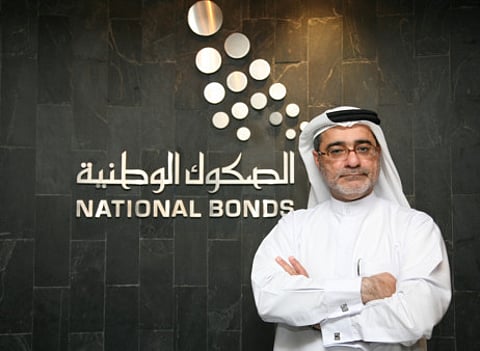Low-income workers able to save regularly
Middle to high-income residents struggle to keep up with savings goals, new research shows

People’s ability to save may not depend so much on the size of one’s paycheque. In fact, those with less are able to set aside money regularly than those who earn more each month, a new research has found.
The latest National Bonds Savings Index showed that 31 per cent of workers in the UAE with a monthly income of less than Dh3,500 are either saving regularly each month or every three months, compared to only 29 per cent among other community and income groups.
The index covers the results of an annual study that polled more than 1,700 respondents in the UAE and other GCC countries. National Bonds has just added a new feature in the index to look into the saving and spending habits of more than 200 workers earning less than Dh3,500.
The reasons behind the savings divide are the attitude and spending habits of the two income groups.
“Those who earn less have families in their home countries and this is putting pressure on them to spend less in the UAE. They have a clear goal, which is to work hard and save enough in order to meet the needs of their dependents,” Mohammad Qasim Al Ali, CEO of National Bonds.
“Their lifestyle is different from those with higher income. They don’t go to cafes every weekend, spend expensive holidays abroad or lead a luxurious life,” he added.
The new study dispels the most common excuse that people often use to justify their inability to save: lack of income. Al Ali said that no matter the level of income or circumstance, consumers can set aside regular amounts, if they put their minds and hearts into it.
Very minimal change
Although the economic conditions have improved, the savings index showed a very minimal change in the saving environment and the state of people’s personal finances.
Among the middle to high-income respondents, 86 per cent said they don’t believe their current savings are adequate for the future, a 1 per cent improvement from last year.
About two out of 10 ( 21 per cent) were able to set aside 11 to 20 per cent of their earnings, while 31 per cent saved less than 10 per cent. About 84 per cent think their income will remain stable or increase, showing a one per cent improvement from last year.
In comparison, nearly half (49 per cent) of low-income earners were able to meet their savings goals; about 4 per cent saved more than planned, while the rest admitted to saving less.
There are also more people from this group (37 per cent) who are confident that their savings pots would be “somewhat adequate” for future expenses compared to 13 per cent across the UAE as a whole.
While this year’s overall data showed relatively positive improvements, Al Ali said more needs to be done for the culture of savings to take root in the country. Although respondents pointed to high cost of living, limited income and job insecurity as the key factors hindering their regular savings, Al Ali said the root causes include a lack of financial awareness and high spending culture.
He suggested that financial education should start from the family, and elementary schools should include in their curriculum subjects related to personal finance, while would-be couples should be required to undergo finance lessons prior to their marriage.



